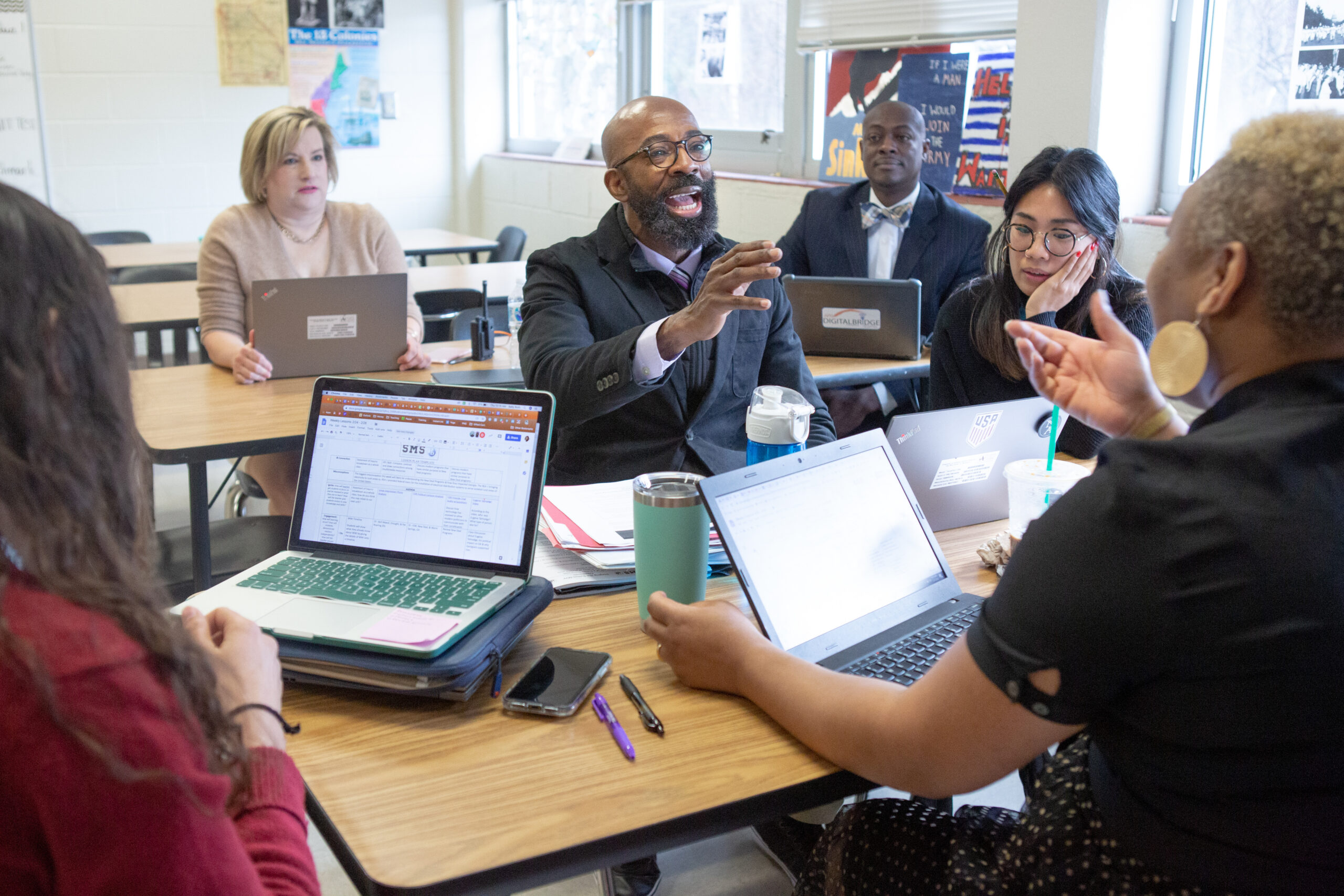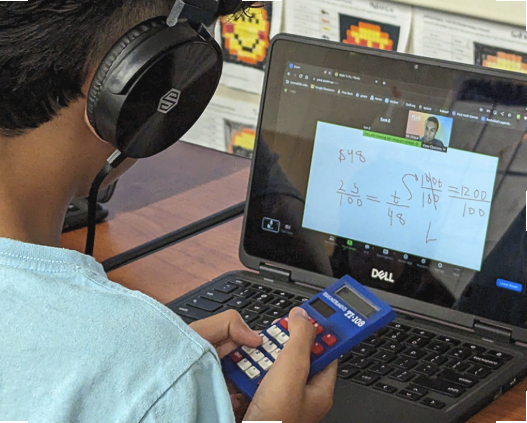Using Tutoring And AI To Overcome Math Anxiety
When Robert Pedro came into teacher William Roberson’s eighth-grade math class, the educator saw all the signs of a student who suffered from a severe case of math anxiety.
Robert would “curl up into a ball,” Mr. Roberson said, noting that the boy’s lack of confidence in his math skills was palatable.
This sort of “math phobia” is well known to veteran teachers like Mr. Roberson and researchers. An EdWeek article from 2020 noted that 67 percent of U.S. teachers reported that math anxiety was a challenge for their students, and that “by some estimates, nearly one in five U.S. adults report severe math anxiety.”
Although Mr. Roberson had seen this type of anxiety many times over the years, Robert’s case was particularly severe. Even the teen knew it.
“I really didn’t like math at all,” Robert said. “I wasn’t good at math. Mr. Roberson would explain it, but I just wouldn’t get it.”
But you would never know that today. Watching Robert in class at LIFE Male STEAM Academy in Pittsburgh, Pa., the soon-to-be ninth-grader works through math problems with skill and confidence.
Mr. Roberson credits a new program from nearby Carnegie Mellon University with helping turn Robert from a mathphobe into a standout student. The program, called PLUS – Personalized Learning Squared – uses a combination of live tutors and an AI-powered learning platform to personalize math instruction and provide teachers with real-time data they can use to address their students’ learning gaps.
PLUS, part of the Learning Engineering Virtual Institute, is currently used in 13 schools in four states, reaching an estimated 2,800 students. Researchers have determined that students who use the platform improve their math skills and may even double their rate of math learning. Currently, more than 85 percent of the students served by PLUS come from low-income backgrounds.
For teachers, PLUS’s data dashboard is a big attraction. For students like Robert, however, it’s the tutoring that makes the biggest impact.
The tutors are students at Carnegie Mellon, and they’re trained in techniques of effective tutoring, like how to react to student errors and on issues like social-emotional learning. They meet with students virtually and offer students the chance to get help from math experts who might take a different approach to teaching complex material. Sometimes, a different approach makes all the difference.
“Mr. Roberson explains it to us, but they [his tutor] explain it in a different way and they showed me a bunch of tricks I can use to solve problems,” Robert said.
As a result of his participation in the PLUS program – along with Mr. Roberson’s expert teaching and the data provided by the PLUS platform – Robert saw his score on the school’s math aptitude test increase by more than 200 points in a single school year, a result Mr. Roberson called “phenomenal” considering most students advance by about 80 points on the same assessment.
Furthermore, as Robert’s confidence in math grew, it spilled over into other subjects and classes. As his grades improved, he became more self-assured, resilient, and positive about school.
“Robert puts forth a lot more effort. He doesn’t quit anymore,” Mr. Roberson said. “The tutoring, the teaching – it was all of these things working together to boost his confidence and skills.”



